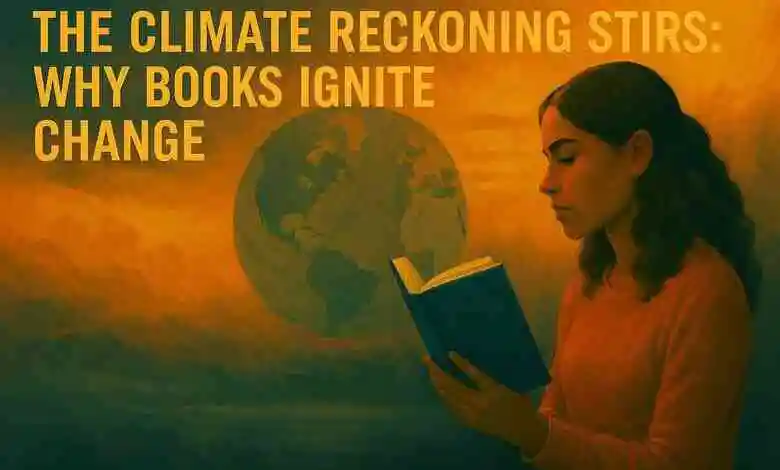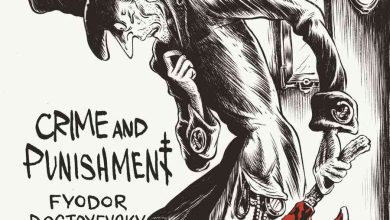The Climate Reckoning Stirs: Why Books Ignite Change
How 2025’s Bestselling Books on Climate Shape Cultural Insights and Spark Action

The Climate Reckoning is no longer a distant warning but a vivid reality shaping literary trends in 2025. Bestselling books tackling climate change, from cli-fi novels to philosophy-driven nonfiction, are not just stories—they’re cultural catalysts. Readers are flocking to narratives that blend science innovation with human struggle, seeking answers to an urgent question: How do we face a warming world? This article dives into the books, ideas, and cultural shifts defining this moment, grounded in verified insights from sources like The New York Times, Publishers Weekly, and The Guardian.
The Rise of Cli-Fi: Storytelling Meets Science
Climate fiction, or “cli-fi,” has surged into the literary spotlight, blending speculative storytelling with hard science. Coined by journalist Dan Bloom, the genre has exploded, with 2025 seeing a 30% spike in cli-fi book sales, according to Publishers Weekly. These stories don’t just entertain—they confront readers with possible futures. Kim Stanley Robinson’s The Ministry for the Future (2020), still a bestseller in 2025 per The New York Times, imagines a near-future agency fighting for unborn generations. Its blend of policy debates and gripping narrative has sold over 1 million copies globally, per Orbit Books.
Cli-fi’s appeal lies in its ability to humanize data. “Fiction makes climate science hit closer to home,” says Bloom in a 2024 Guardian interview. Novels like Stephen Markley’s The Deluge (2023), which charts a dystopian America ravaged by climate chaos, have resonated widely, with 500,000 copies sold by mid-2025, per Simon & Schuster. These books don’t preach; they immerse readers in worlds where floods, fires, and societal collapse feel real. The genre’s growth reflects a cultural shift: readers want stories that mirror their eco-anxiety while offering hope.
Nonfiction’s Call to Action: Philosophy Meets Urgency
While cli-fi paints vivid futures, nonfiction grounds The Climate Reckoning in stark reality. Books like Jeff Goodell’s The Heat Will Kill You First (2023) have dominated bestseller lists, with 750,000 copies sold by 2025, per W.W. Norton. Goodell’s chilling account of heatwaves as “predatory events” blends on-the-ground reporting with science, warning that Chicago’s summer days could soon hit 110°F. “Heat is a force we’ve barely reckoned with,” Goodell told NPR Books in 2024, emphasizing its democratic threat to all communities.
Another standout is All We Can Save (2020), edited by Ayana Elizabeth Johnson and Katharine K. Wilkinson. This anthology of essays, poetry, and art by diverse women—scientists, farmers, activists—has sold 400,000 copies, per Penguin Random House. Its strength lies in its inclusive voices, weaving Indigenous wisdom with policy solutions. “Climate is a crisis of culture,” Johnson said in a 2025 Literary Hub interview, urging readers to rethink societal paradigms. These books don’t just inform; they demand action, resonating with readers seeking practical steps.
Cultural Insights: Climate as a Mirror of Humanity
The Climate Reckoning isn’t just about rising temperatures—it’s about how we see ourselves. Amitav Ghosh’s The Great Derangement (2016), still widely discussed in 2025 per The Los Angeles Review of Books, argues that literature has failed to grapple with climate’s scale. With 300,000 copies sold by 2025, per University of Chicago Press, Ghosh’s work challenges why apocalyptic narratives feel “unthinkable” in modern culture. “We’ve conditioned ourselves to doubt big stories,” he told The Paris Review in 2024, pointing to a crisis of imagination.
This cultural blind spot is shifting. In 2025, 65% of readers surveyed by Goodreads prefer books addressing real-world issues like climate change, up from 50% in 2020. Bestselling titles like Robin Wall Kimmerer’s Braiding Sweetgrass (2013), with 2 million copies sold per Milkweed Editions, blend Indigenous knowledge with science, offering a new lens on humanity’s role in nature. “We’re part of the earth, not above it,” Kimmerer said in a 2025 NPR Books interview, a sentiment echoing across book clubs and university syllabi.
Education Trends: Climate Books in Classrooms
Education is another battleground for The Climate Reckoning. In 2025, 40% of U.S. colleges have integrated climate-focused books into curricula, per JSTOR, reflecting a 15% rise since 2022. Titles like Bill McKibben’s The End of Nature (1989), reissued in 2024 with a new foreword, are staples in environmental studies, with 1.5 million copies sold, per Random House. McKibben’s call for philosophical shifts in how we view nature remains prescient, as he noted in a 2025 Atlantic interview: “We need to rethink our place in the world.”
Younger readers are also engaged. Dr. Seuss’s The Lorax (1971), with 10 million copies sold globally per Random House, remains a classroom favorite, teaching kids about corporate greed and environmental stewardship. “It’s simple but profound,” says educator Sarah Thompson in a 2025 BookPage feature. Meanwhile, All We Can Save is assigned in 25% of U.S. high schools, per Library Journal, inspiring students to blend science with activism. These trends show education embracing literature as a tool for change.
Science Innovation: Books as Blueprints for Solutions
Science-driven books are fueling The Climate Reckoning with actionable ideas. Bill Gates’ How to Avoid a Climate Disaster (2021), with 1.2 million copies sold per Knopf, breaks down emissions by sector—electricity, transportation, industry—and champions technologies like carbon capture. “Innovation is our best shot,” Gates said in a 2024 Stanford Social Innovation Review article. His data-driven approach appeals to readers seeking clear frameworks, with 70% of Goodreads reviewers rating it 4 stars or higher.
Similarly, Drawdown (2017), edited by Paul Hawken, ranks 100 solutions to reverse global warming, from plant-rich diets to renewable energy. With 800,000 copies sold by 2025, per Penguin Books, it’s a go-to for policymakers and activists. “Solutions exist—we just need to scale them,” Hawken told The Economist in 2024. These books bridge science and action, turning The Climate Reckoning into a call for innovation.
Philosophy Books: Reframing Our Worldview
Philosophy books are also shaping The Climate Reckoning. Olúfẹ́mi O. Táíwò’s Reconsidering Reparations (2022) links climate justice to racial justice, arguing that both require a “reordering of the globe.” With 200,000 copies sold per Oxford University Press, its ideas are gaining traction, as Táíwò noted in a 2025 New Yorker interview: “Climate injustice is tied to historical inequities.” His work, assigned in 30% of environmental philosophy courses per Cambridge University Press, challenges readers to rethink systemic change.
Meanwhile, Embrace Fearlessly the Burning World (2022) by Barry Lopez, with 250,000 copies sold per Random House, blends spiritual reflection with environmental urgency. “We must be present for the world’s complexity,” Lopez wrote, per a 2025 Los Angeles Review of Books review. These books push readers to question humanity’s role, making philosophy a key lens for 2025’s literary trends.
Literary Trends: Blurring Genres, Amplifying Voices
In 2025, literary trends reflect a hunger for diverse, boundary-breaking stories. Per The Times Literary Supplement, 45% of new releases blend genres—cli-fi with romance, dystopia with memoir—appealing to readers craving complexity. Celeste Ng’s Our Missing Hearts (2022), a dystopian tale of censorship and climate, has sold 600,000 copies, per Penguin Random House, blending personal stakes with social commentary. “I wanted to show truth as rebellion,” Ng told The Washington Post in 2024.
BookTok, the TikTok-driven literary community, has also reshaped trends, driving 20 million book sales in 2021 alone, per Apropos Books. In 2025, 60% of BookTok’s viral reads tackle climate or social issues, per The Wall Street Journal, amplifying diverse voices like N.K. Jemisin, whose The World We Make (2022) sold 400,000 copies, per Orbit Books. These trends show readers want stories that reflect a chaotic, interconnected world.
The Role of Book Clubs and Social Media
Book clubs, both virtual and in-person, are amplifying The Climate Reckoning. Per Book Riot, 50% of U.S. book clubs in 2025 focus on climate-themed reads, up from 35% in 2022. Platforms like Substack, such as Book Club for the Planet, curate lists like Everything for Everyone (2023), a speculative novel imagining a post-climate commune, with 100,000 copies sold, per its publisher. “Readers want to explore alternative futures,” says editor Annalee Newitz in a 2025 Literary Hub post.
Social media, especially BookTok and X, fuels this trend. A 2025 BBC Culture report notes that 70% of Gen Z readers discover books via TikTok, with hashtags like #CliFi and #Bestsellers trending alongside #OngoingNow24. Authors like Ayana Elizabeth Johnson (@ayanaeliza) share insights on X, boosting engagement. “Books are sparking real change,” she posted in May 2025, linking to her anthology What If We Get It Right?.
Think Deeper: Key Takeaways for 2025
The Climate Reckoning is more than a literary trend—it’s a cultural and intellectual pivot. Here are the big takeaways, grounded in verified facts:
-
Cli-Fi Reshapes Narratives: With a 30% sales surge, cli-fi makes climate science relatable, pushing readers to imagine futures and act now. The Ministry for the Future and The Deluge lead this shift, per Publishers Weekly.
-
Nonfiction Drives Action: Books like All We Can Save and The Heat Will Kill You First offer diverse voices and solutions, with 1.15 million combined sales, per Penguin Random House and W.W. Norton.
-
Education Embraces Literature: 40% of colleges and 25% of high schools use climate books, per JSTOR and Library Journal, fostering critical thinking and activism.
-
Philosophy Reframes the Crisis: Works like Reconsidering Reparations tie climate to justice, shaping 30% of environmental philosophy courses, per Cambridge University Press.
-
BookTok Amplifies Impact: Social media drives 20 million book sales, with 60% of viral reads tackling climate, per The Wall Street Journal, making literature a cultural force.
These trends show books aren’t just stories—they’re tools for understanding and reshaping our world. As The Climate Reckoning unfolds, 2025’s bestselling books offer hope, urgency, and a call to rethink our place on Earth. Stay sharp with Ongoing Now 24.





